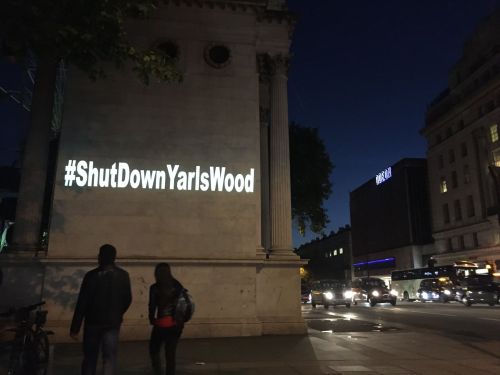
Every year or so, a new report uncovers the programmatic abuse of women asylum seekers in Yarl’s Wood. In 2006, Black Women’s Rape Action Project (BWRAP) and Women Against Rape (WAR) released Misjudging rape – Breaching Gender Guidelines and International Law in Asylum Appeals, which examined 65 rulings by immigration judges. The judges rejected rape claims in 65% of the cases, arguing each woman had failed to mention the rape early on and so must be lying. Since then, the reports have continued, and each shows the situation has, if anything, worsened. If everything stays the same, or declines, what’s new?
“Appropriate vulnerability.”
The most recent study, “Reason to disbelieve: evaluating the rape claims of women seeking asylum in the UK”, finds “the structural and practical obstacles faced in establishing credibility, and the existence of scepticism about rape claims and asylum-seeking more generally, mean that decision-making can often be experienced as arbitrary, unjust, uninformed or contradictory, making it difficult for women asylum applicants who allege rape to find refuge in the UK.”
In a more popular article this week, the author’s explained, “The structure of the asylum system, as well as working cultures around decision-making, can negatively impact women whose asylum claims involve rape allegations. Evaluations of credibility are often influenced by dubious assumptions regarding culture, gender, and sexual violence, and draw upon limited experience of, or empathy with, the peculiar challenges faced by ‘others’. The structural and evidential demands of the asylum process, as well as the political controversies that it attracts, do little to facilitate improvements in the handling of disclosures of rape. Ultimately, success in securing refugee status continues, for too many women, to depend upon their ability to position themselves as ‘appropriately’ vulnerable victims.”
Though grim, the report is in no way surprising. We know that asylum seekers who have been raped must struggle for justice, and, more often than not, don’t get it. We know that such is the case for women generally, and so even more so for the poor and the stranger in our midst. We know the misogyny that informs dismissal of claims of sexual violence. We know that the State and Civil Society built and maintain Yarl’s Wood, where survivors of sexual and domestic violence are not only routinely but brutally denied care services, as are their children, children who have often witnessed the violation of their mothers. We know that from before the beginning to beyond the end, the conditions are designed to further violate women asylum seekers, “this is a journey haunted by silence.” None of this is new, none of this is news, and we know and have known all of it for some time now.
“Appropriate vulnerability” suggests much more than “the treatment of those who come to the UK seeking protection from sexual abuse often remains inadequate.” It’s not inadequate. It’s designed to brutalize women. It is time; it is way past time, to stop analyzing the brutality of Yarl’s Wood as a lack or absence. The State wanted, and wants, a house of non-national women held in a state of perpetual and intensifying violence, and it built it, named it Yarl’s Wood, and called its light Day and its darkness Night, and behold …
Who aspires to “appropriate vulnerability”? No one should, but the State forces women to do so. We have had enough reasoned and balanced reports. We know it is time to end State violence against women, committed in our names. Do it now! #ShutDownYarlsWood #SetHerFree
(Photo Credit: CavaSundays) (Woodprint by Jacob Steinhardt, at Velveteen Rabbi)